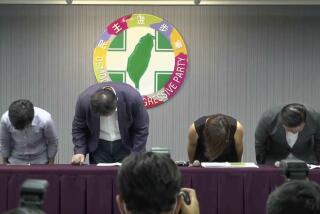Supreme Court’s Two Decisions Based on Common Framework
- Share via
WASHINGTON — For the Supreme Court, Friday’s two decisions on sexual harassment marked an unusual effort to announce a clear set of rules to govern what has been a confused area of law. Justices David H. Souter and Anthony M. Kennedy, in reading their opinions from the bench, said the court had agreed on a common framework. Both opinions included the same paragraphs.
They set forth three points:
* Employers are always liable for sexual harassment by supervisors if a victim suffers “a tangible employment action, such as a discharge, demotion or undesirable reassignment.”
* Even in the absence of such actions, employers are usually liable when employees are subjected to a “hostile environment,” such as lewd and abusive comments from a supervisor.
* However, in these instances, employers can avoid a big damage award if they can prove that they had “exercised reasonable care to prevent” harassment and that the victim “unreasonably failed to take advantage” of complaint procedures.
More to Read
Inside the business of entertainment
The Wide Shot brings you news, analysis and insights on everything from streaming wars to production — and what it all means for the future.
You may occasionally receive promotional content from the Los Angeles Times.











